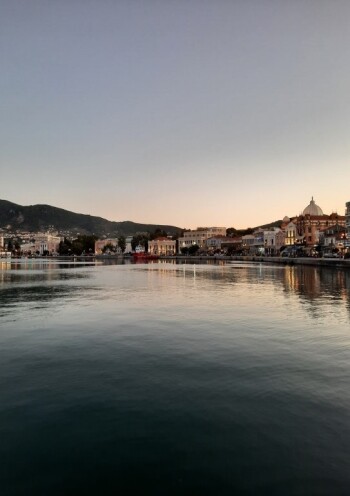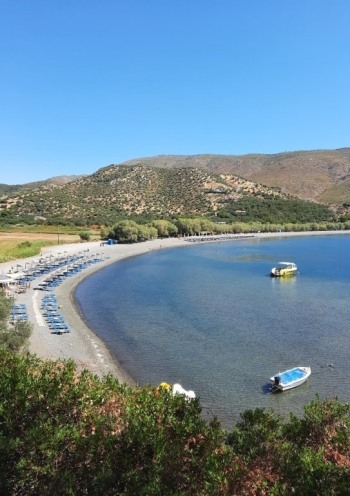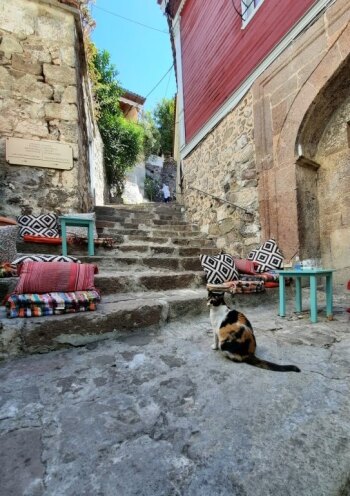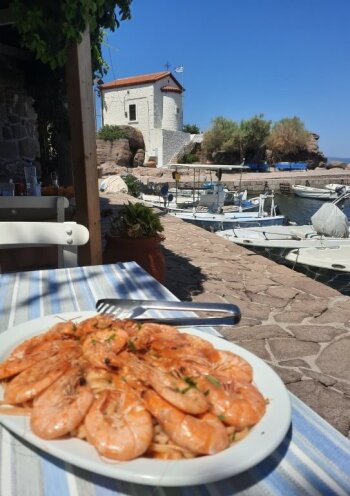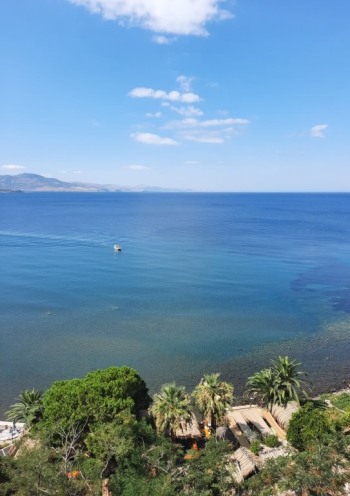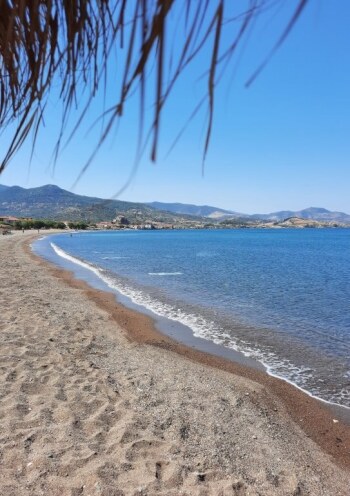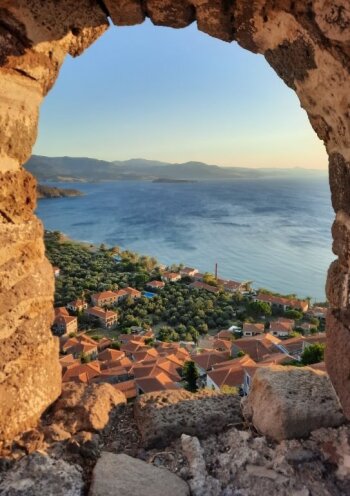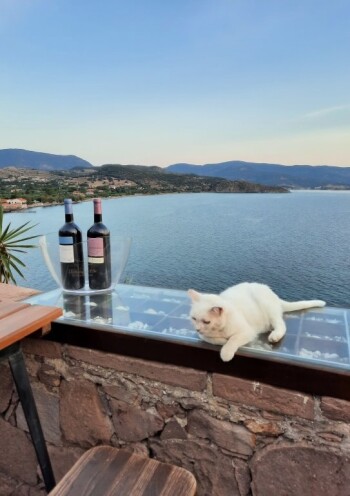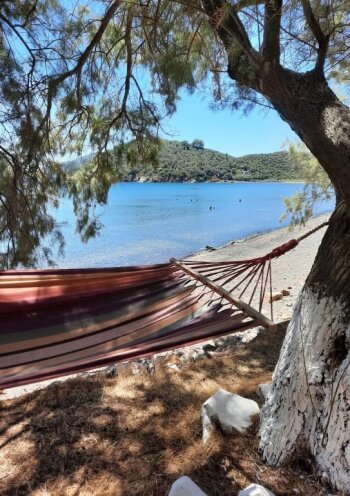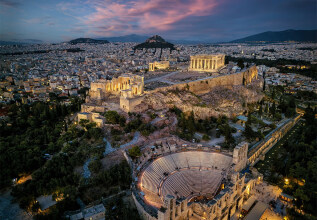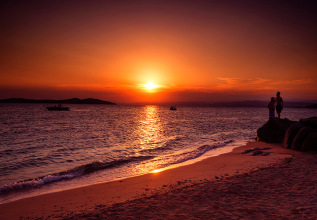6 MIN
TRAVEL TIPS
Why visit the Greek island of Lesvos: 7 reasons to choose it as your vacation
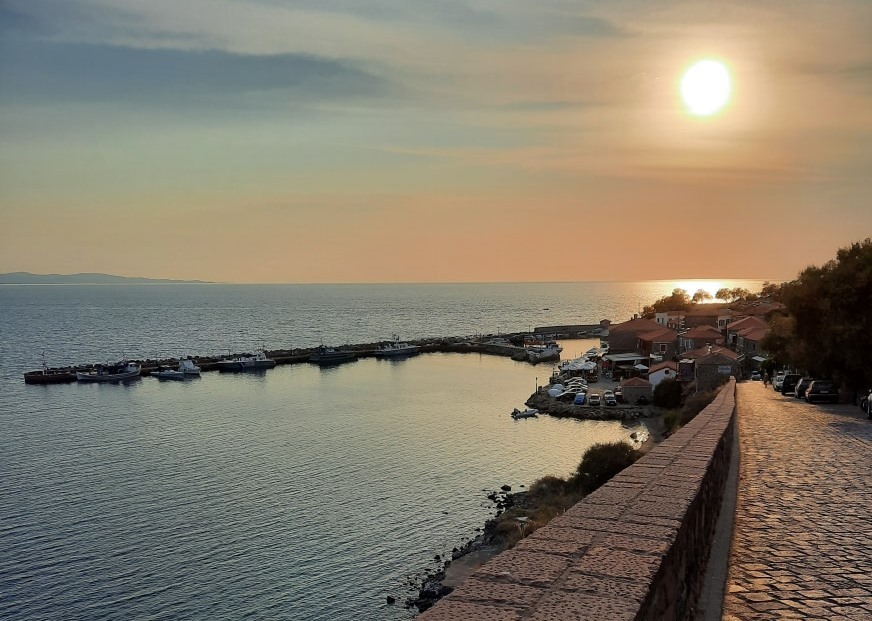
Although less famous than other Greek islands, Lesvos has a unique character able to give you the most authentic holiday experience in Greece, as far as relaxation and gastronomy is concerned.
So why visit the island of Lesvos on your next vacation? Here are some good reasons.
1. Visit Lesvos because it is the land of ouzo
When it comes to Lesvos, one cannot help but think of ouzo. Ouzo is an aromatic aniseed distillate that is chosen by the Greeks to accompany appetizers and can be considered the national drink par excellence.
Almost all of the Greek ouzo is produced right here, and also where the main national brands are based with their factories, mainly concentrated in the Plomari area. You can visit museums that tell the history of ouzo production and above all you can taste various types, which in other parts of Greece you would not be able to find.
2. Discover the richness of the island's many cultural sites
Lesvos is rich in archaeological sites that are the result of a long history. You can venture to the castles of Molyvos, Mytilene and Sigri. Other ancient monuments are the theater of Mytilene, the temple of Klopedi, the sanctuary of Messa and the Roman aqueduct of Moria. A natural monument and world heritage site is the spectacular petrified forest in Sigri.
You cannot miss some museums such as the Archaeological Museum, the Museum of Modern Arts or the Teriade Museum with masterpieces by the famous Greek painter Theofilos, located in Mytilene or many others that are scattered around the island.
Finally, you can admire the architecture of some particular houses that resemble small castles and which are called Pyrgospita ("Pyrgos" means tower and "Spiti," means house); they are located at the entrance to the city of Mytilene and Thermi.
3. Because there are numerous kilometers of beaches to dive into
The fact that the island is large guarantees many kilometers of coastline. Any corner is good for swimming and do not be surprised to see people jumping into the sea almost everywhere, because the quality of the sea is remarkable and of course, all beaches have free access. Having your own car is the best choice to move around the island and therefore you will not miss out on panoramic points or very nice isolated beaches.
There are also large beaches, sandy or with pebbles, with organized beach bars such as those of Petra, Molyvos, Vatera, Charamida, Plomari or Skala Eressou. If you are a lover of thermal baths, there are many points with natural hot waters such as in Eftalou, in the Bay of Gera and in Polichnitos. The most organized and ready to pamper you is just outside the city of Mytilene overlooking the bay of Gera.
4. The island is the birthplace of the poet Sappho
Sappho was born in Lesvos and lived there. Sappho was a famous poetess from the ancient greek times who sang the love between women. The current term "Lesbianism" derives from the name of the island itself thanks to the famous verses of Sappho. You will find statues representing the poet in both Mytilene and Skala Eressou.
Lesvos is therefore a welcoming LGBT island and in particular Skala Eressou, the birthplace of Sappho, has become a meeting point and symbol of lesbians from all over the world (the International Women's Festival is held every September).
5. Because there is Molyvos (and beyond) which is a truly picturesque village
Molyvos has always been a meeting point for poets, painters and intellectuals from all over the world because it is a place of inspiration thanks to its imposing castle, the harbor full of fishermen's boats and the historic center with the narrow streets of pebbles going up and down.
Even today it has maintained these characteristics, thanks also to its UNESCO World Heritage Site status and offers unique views, especially at sunset. There is no shortage of typical taverns, bars and local art shops.
In the surroundings of Molyvos there are other characteristic villages, among them Skala Sykaminias which is a tiny port with a famous church built on a rock in the sea, Vafios village, known for its culinary excellence of meat and the paths on foot and by bike and Petra with its particular church of the Madonna located on a large rock formation that stands out.
6. The Mediterranean gastronomy of Lesvos is unique
There is certainly no lack of ouzo to drink, but what should one accompany it? With the island's natural products! The production of olive oil, which was called "liquid gold" at the not so very old times, is still very important and of high quality. Some local brands have won awards worldwide. After a few days on the island, you will easily realize that there are olive groves everywhere.
Sardines are another typical product. The bay of Kalloni is famous for its tasty sardines (called "papalina"), so much so that every August there is a Festival dedicated at sardines. The most famous appetizer is the raw sardine in salt, called "pasti".
The octopus is cooked with original and unique recipes of this island. There is no shortage of cheeses, such as Ladotiri (preserved in olive oil) and a category of dishes served called "stuffed" with fresh local ingredients. Finally, you can delight yourself with traditional sweets that will certainly include almonds in them.
7. It is one of the most authentic islands of Greece
If you are looking for an island off the beaten track where you can spend a peaceful holiday, but especially if you want to experience a Greek island in its full originality, Lesvos is the ideal place. The island is also defined as "the other Aegean", precisely because it represents an alternative to the usual Greek islands, some of which have become too touristy during the high season months.
The favorable Mediterranean climate, the many trekking or walking activities in the midst of nature and the hospitality of the locals, transmit a feeling of freedom and light-heartedness.
